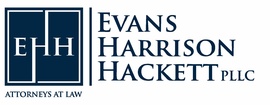EMPLOYMENT LAW ALERT
COMMENTS ABOUT EMPLOYEE "FITTING IN" TREATED AS EVIDENCE OF RACIAL BIAS
Not all employment-related decisions are objective and quantifiable. When making decisions involving performance evaluations, raises, bonuses, promotions, and even terminations, employers are often required to make subjective decisions as to the performance and/or abilities of their employees. Often, employers explain a difficult termination decision by noting that it "just didn’t work out," "the employee wasn't the right fit for the position," or "we are just going in a different direction."
Obviously, decisions based on subjective criteria can become problematic for employers. It is often easier for disgruntled employees to argue with subjective decisions, which by their very nature are not supported by hard data or statistics. When reasonably minds can differ as to a subjective decision, in turn, it makes it all that harder to predict how a jury might view the situation.
In Abrams v. Department of Public Safety (August 26, 2014), the U.S. Court of Appeals for the Second Circuit examined how a decision based upon subjective criteria can backfire on an employee. In the Abrams case, the plaintiff, a black male, was employed as a detective with the Connecticut Department of Safety. Over a period of several years, he sought a promotion to an elite unit that investigated serious crimes, suspicious deaths, and homicides. Although 8 individuals were selected for promotion to that unit, however, each of those individuals was white.
In explaining the plaintiff's failure to obtain a promotion to the elite unit, his supervisor explained that one of the white candidates had been a "better fit" for the unit than the plaintiff. In addition, a detective who had been consulted during the selection process had remarked that the plaintiff "did not fit in" to the unit.
The employer filed a motion to dismiss the plaintiff’s race discrimination claims; specifically, with regard to the above comments, the employer argued that there was insufficient evidence to find that the “fitting in” comments referred to the plaintiff’s race. The Court of Appeals, however, disagreed and denied the employer’s motion. As the court noted, “after all, a hiring official’s subjective belief that an individual would not ‘fit in’ or was ‘not sufficiently suited’ for a job is at least as consistent with the discriminatory intent as it is with non-discriminatory intent.” Although the Court pointed out that this was a “very close case,” therefore, the plaintiff’s racial discrimination claims were allowed to proceed to a jury.
So…what can employers learn from the Abrams case? Most fundamentally, employers should be careful to ensure that subjective decisions are well thought-out and do not create an inference of discriminatory bias. Here, the employer should have been aware that the selection of 8 white candidates for its elite unit – and the repeated bypassing of a black applicant for the position – could have created a perception of discrimination. When informed that at least part of the reason for these decisions were that the black candidate “did not fit in,” then, the employer should have delved more deeply into what was meant by that statement. The employer should have ensured that these comments did not reflect a discriminatory bias on the part of its decision-makers. If, on the other hand, these comments related to the fact that the plaintiff’s job skills, aptitudes, or qualifications were not up to par with the requirements of the elite unit, then the employer would have some specific details to back up its decision. In the Abrams case, however, the employer had no such information to support its decision, leaving it up to a jury to decide whether the “better fit” comments reflected a discriminatory bias.
If you have questions about this Employment Law Alert or wish to discuss the impact of this decision upon your business, please do not hesitate to contact Maury Nicely at Evans Harrison Hackett PLLC, 423/648-7851 or mnicely@ehhlaw.com.


